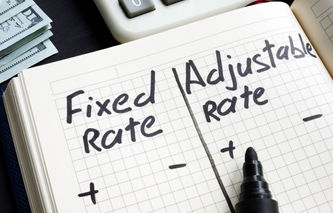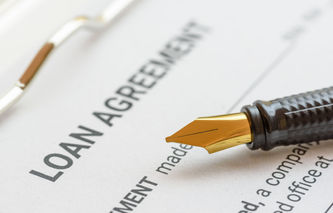There are a number of reasons why someone might wind up with bad credit; people make mistakes. They stretch too far when it comes to financial commitments, or experience an unfortunate run of bad luck such as losing a job. Regardless of the reason, many of these same individuals often wonder to themselves: Is buying a home with bad credit possible?
Home Loans and Bad Credit
As the saying goes, anything is possible; but is this a reality or just a dream? Credit reporting is a way that merchants share information with agencies with the hope of avoiding extending credit to individuals that are not able to repay a loan or mortgage.
Problems usually start with delayed or late payments on smaller loans or credit cards, but the impact can be substantial. Lending institutions leverage the information appearing on credit reports in an attempt to lower the risk of default or non-payment on a loan. When the stakes are high, as is the case when buying a home, the lender will have a set of rules they use when evaluating a customer for credit (or a loan). Credit reporting agencies use numerical scores to evaluate consumers for risk. Lending institutions will set policy, and determine who will be approved and under what conditions. This is where the score on the applicant's credit report becomes important.
What is a Bad Credit Score?
When it comes to FICO credit scores, everything is relative, and certainly some scores are worse than others. But credit scores will not only vary from individual to individual but also show trends from state to state.
Rebuilding Credit after Bankruptcy
- Ensure your credit report reflects the outcome of the bankruptcy proceeding
- Apply for a secured credit card
- Obtain a personal car, or student loan and repay the amount owed on time
That being said, these changes tend to be minute. For example, a credit score of 710 is likely to be considered "good" by many agencies - but it can be better.
If you're trying to figure out whether your score is "good", take a look at our article "What Is a Good Credit Score". That article contains information on the range of scores as well as the components that go into its calculation. Individuals interested in geographic information should take a look at our article National Average Credit Scores, which contains scores for each state.
If it's not looking good, we also guide you through how to increase your credit score.
Repair Services
Be skeptical of anyone promising instant credit repair. It simply doesn't work that way. Mistakes on a credit report can be corrected but beyond that only time, and a good payment history, will result in a better rating. This is not to say debt counselors should be avoided. According to a recent research, 31% of people utilize credit repair services for three to five months. Anyone who is having trouble managing their financial affairs needs help before buying a home. The last thing anyone wants to do is buy a home, and then lose it because they cannot afford the monthly mortgage payments or are not well versed in budgeting or home economics.
Home Buying Programs
The best source available to anyone struggling in this area is the U.S. Department of Housing and Urban Development, or HUD. This federal agency insures loans against default, so that the actual lender, or creditor, is insulated from the risk of non-payment on a mortgage. In fact, HUD has a special program that in some cases will insure loans for families who do not meet the standard credit risk requirements to buy low cost homes. Under this program, homes can be purchased for as little as 3% down and the closing costs can be folded into the mortgage. To get started in this program, contact a local HUD house counseling agency, which can be found on the HUD website. It's also possible to reach HUD at their toll free telephone number (800) 569-4287, and ask for a list of local counselors.
Local Programs
Many states also offer local home buying assistance for families or individuals with bad credit. Once again, the HUD website contains information on local home buying programs. This information can also be found in the blue pages (government pages) of a local telephone book. Look for the listings for a local office of housing and community development. If a listing under that heading isn't found, the township or county office can explain how to find the right people or government agencies in the area.




